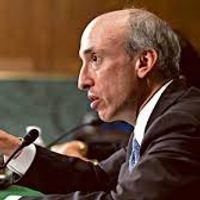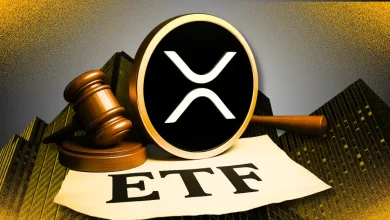
The cryptocurrency industry in the United States has been facing challenges due to the lack of clear regulatory guidelines governing digital assets. The U.S. Securities and Exchange Commission (SEC) has taken an aggressive approach, filing lawsuits against numerous digital currency firms, with one of the most prominent cases being the Ripple vs. SEC lawsuit. The SEC claimed XRP is a security, but the judge ruled it is not. This ruling brings clarity and sets a precedent for similar cases.
The SEC Chairman, gary gensler

 gary gensler Gary Gensler is the chairman of the U.S. Securities and Exchange Commission (SEC). His studies in finance and blockchain at MIT have helped him develop U.S. cryptocurrency regulations and policies.
Quick Facts Full name Gary Scott Gensler Birth 18-10-1957, Baltimore, Maryland, United States Nationality American Education MBA from the University of Pennsylvania Marital status Married to Francesca Danieli (1986-2006) Net worth Estimated $100 million
Gensler has advocated for enhanced supervision of digital assets, seeking to regulate cryptocurrencies similar to securities. His work at the SEC has focused on safeguarding investors, regulating crypto exchanges, and establishing stablecoin policies.
Gary Gensler - Career Highlights 1997 – Became Assistant Secretary of the Treasury.
2009 – Led CFTC, regulating financial derivatives post-2008 crisis.
2018 – Taught blockchain and crypto at MIT.
2021 – Appointed SEC Chairman, focusing on crypto regulations.
2022 – Proposed stricter rules for crypto exchanges.
2023 – Took legal action against major crypto firms.
2024 – Advocated for stronger stablecoin and DeFi regulations.
Gary has collaborated with multiple lawmakers in formulating crypto policies. Even with disagreements with crypto investors regarding crypto policies, he continues to be a key player in the changing dynamic between regulatory frameworks and blockchain advancement.
Awards & Recognitions of Gary Gensler Year Institution Description 2009 U.S. Treasury Financial Regulation Leader 2018 MIT Blockchain & Crypto Educator 2021 SEC SEC Chairman Overseeing Crypto Policies 2023 Bloomberg Most Influential Regulator in Crypto 2024 Forbes Top Policy Maker in Digital Assets
Useful Links to Connect With Gary Gensler Platform Link X (formerly Twitter) twitter.com/GaryGensler CFTC website Chairman Gary Gensler Chairman , has been heavily criticized by the industry for his handling of digital assets and his stance on XRP. Another individual involved in the Ripple lawsuit has also faced scrutiny, adding to the ongoing regulatory debates in the US crypto industry.
gary gensler Gary Gensler is the chairman of the U.S. Securities and Exchange Commission (SEC). His studies in finance and blockchain at MIT have helped him develop U.S. cryptocurrency regulations and policies.
Quick Facts Full name Gary Scott Gensler Birth 18-10-1957, Baltimore, Maryland, United States Nationality American Education MBA from the University of Pennsylvania Marital status Married to Francesca Danieli (1986-2006) Net worth Estimated $100 million
Gensler has advocated for enhanced supervision of digital assets, seeking to regulate cryptocurrencies similar to securities. His work at the SEC has focused on safeguarding investors, regulating crypto exchanges, and establishing stablecoin policies.
Gary Gensler - Career Highlights 1997 – Became Assistant Secretary of the Treasury.
2009 – Led CFTC, regulating financial derivatives post-2008 crisis.
2018 – Taught blockchain and crypto at MIT.
2021 – Appointed SEC Chairman, focusing on crypto regulations.
2022 – Proposed stricter rules for crypto exchanges.
2023 – Took legal action against major crypto firms.
2024 – Advocated for stronger stablecoin and DeFi regulations.
Gary has collaborated with multiple lawmakers in formulating crypto policies. Even with disagreements with crypto investors regarding crypto policies, he continues to be a key player in the changing dynamic between regulatory frameworks and blockchain advancement.
Awards & Recognitions of Gary Gensler Year Institution Description 2009 U.S. Treasury Financial Regulation Leader 2018 MIT Blockchain & Crypto Educator 2021 SEC SEC Chairman Overseeing Crypto Policies 2023 Bloomberg Most Influential Regulator in Crypto 2024 Forbes Top Policy Maker in Digital Assets
Useful Links to Connect With Gary Gensler Platform Link X (formerly Twitter) twitter.com/GaryGensler CFTC website Chairman Gary Gensler Chairman , has been heavily criticized by the industry for his handling of digital assets and his stance on XRP. Another individual involved in the Ripple lawsuit has also faced scrutiny, adding to the ongoing regulatory debates in the US crypto industry.
Ripple Lawsuit Puts Former SEC Chairman Jay Clayton Under Scrutiny
Tony Edward, the Founder & Host of the Thinking Crypto Podcast, recently tweeted about Chairman Jay Clayton, who has come under scrutiny for his involvement in the Ripple lawsuit. He has been dubbed as “Coward Clayton” for filing the lawsuit against Ripple, which reportedly affected XRP holders significantly. However, Clayton resigned from his position at the SEC shortly after the lawsuit was initiated.
Despite being a top CNBC contributor on cryptocurrencies, Clayton has not appeared with notable anchors like Melissa Lee, Joe Kernen, Becky Quick, and Andrew Ross Sorkin. His absence from public commentary has sparked criticism from several XRP investors and the cryptocurrency community at large.
Jay Clayton’s Lack of Clarity in SEC’s Communication Added Uncertainty
Last month, an XRP community member named Ashley Prosper shared an internal SEC email, labeled Exhibit 276 in the SEC vs. Ripple lawsuit. According to Prosper, the document reveals that Jay Clayton had no interest in providing Ripple with any clarity on XRP.
In response, Pro-XRP Attorney john e deaton











